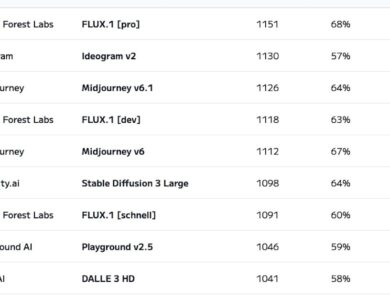Pro blogging: Making Money From Blogs in 2024

A weblog, or simply a blog, is a website that posts or spotlights articles known as ‘blog posts,’ ‘posts,’ or ‘entries.’ These can be in the form of straight text, images, or photographs, thus called photoblog, videos, called videoblog, audio files, called audioblog, and hyperlinks. Frequently, blogs contain chronologically ordered lists of entries that are usually displayed in reverse chronological order, and often, therefore, used as an online diary, a content management system, or an online publishing platform.
Components of a Blog
A usual blog consist of the following:
- Post Date: Date and Time of the blog entry
- Category: It refers to the Category to which a particular blog entry belongs.
- Title: Title of the blog
- Main Body: The main contents of the blog
- RSS and Trackback: Links back to the blog from other sites
- Comments: Commentaries added by the readers
- Permalinks: URL to the full article
- Optional Items: Calendar, archives, blogrolls and add-ons or plug-ins.
- It can also have a footer, usually at the bottom, that contains the post date, author, category, and statistics, the number of comments or trackbacks.
Blog Types
There are different kinds of blogs, such as:
Political Blog: News, politics, activism, and other issue-based topics are discussed and shared.
Personal Blog: This is an online diary where most people share their daily experiences, complaints, poems, and thoughts.
- Topical Blog – It focuses on the particular niche or local information.
- Health Blog: It discusses particular niches on health issues and also the recent medical news.
- Literary Blog: Next genre is a litblog.
- Travel Blog: It talks about the vacation experience and stories of a traveler.
- Research Blog: Talks of academic issues and research notes assigned by a researcher.
- Legal Blog: About the law and the legal affairs. It is sometimes referred to as blawgs.
- Media Blog – uncovers artificiality or inconsistencies in mainstream media
- Religious Blog – discusses regarding religious issues
- Educational Blog – this blog is managed by the students and teachers concerning educational applications
- Collaborative Blog – comprises a number of authors about one niche or sub-niche.
- Directory Blog – directory of a huge number of websites
- Business Blog – primarily, this blog is for the benefit of the business people and corporate personnel to buzz their businesses
- Personification Blog: It focuses on inanimate living things or objects.
- Spam Blog: This kind of blog displays affiliated websites; it is also known by the name splog.
Blogging
Blogging usually requires posting an update to the blog most commonly on a daily basis. ‘To blog’ is the act of writing, posting articles or updating a blog and ‘blogger’ is the name given to the person or a group of persons who maintains a blog. There are more than 3 million blogs in the whole of the internet, and the number is still growing in frequency as most blog software and some tools put them in the hands of everyone wanting to blog-publish or have a blog.
Types of Bloggers
Most bloggers can be categorized into four types, that is:
- Personal Bloggers: for these types of bloggers, their blogging is focused on a diary or any topic an individual feels.
- Commercial Bloggers: These prepare blogs meant to sell products and services.
- Organizational Bloggers: This is done for either pecuniary benefit or not with respect to either dissemination of information to an organization or group of people.
- Professional Bloggers: Bloggers that are employed or occasionally used to keep a blog.
- Problogging: blogging for some form of
- Problogging stands for professional blogging, which is a term used to describe blogging for a profit.
Probloggers are people who make money from their blogs either as independent blog publishers or paid bloggers. In the list below, we will be talking more about some opportunities for pro bloggers to make money with their blogs.
Advertising Programs
- RSS Advertising
- Sponsorship
- Affiliate Programs
- Digital Assets
- Blog Network Writing Gigs
- Business Blog Writing Gigs
- Non-Blogging Writing Gigs
- Donations
- Flipping Blogs
- Merchandising
- Consulting and Speaking
- Keys to Successful Problogging
- Consider what makes up successful pro bloggers:
Be Patient: It takes time for a blog to become successful. It requires a lot of effort and a long-term vision.
Know your audience and target them in order to establish readership.
Be an expert in a niche, and try to be the top blogger in that area.
Diversify; put in place different ad and affiliate programs to earn online than through blog writing.
Engage with Layout, Reader-friendly blog, and approachable. White spaces, line spacing, and big fonts.
CONCLUSION
Well, yes there are thousands pro bloggers who already made it to have full-time earnings. Take at least some risk. Stay with that passion and carry around the right attitude.
A weblog, or simply a blog, is a website that posts or spotlights articles known as ‘blog posts,’ ‘posts,’ or ‘entries.’ These can be in the form of straight text, images, or photographs, thus called photoblog, videos, called videoblog, audio files, called audioblog, and hyperlinks. Frequently, blogs contain chronologically ordered lists of entries that are usually displayed in reverse chronological order, and often, therefore, used as an online diary, a content management system, or an online publishing platform.
Components of a Blog
A usual blog consist of the following:
- Post Date: Date and Time of the blog entry
- Category: It refers to the Category to which particular the blog entry belongs.
- Title: Title of the blog
- Main Body: The main contents of the blog
- RSS and Trackback: Links back to the blog from other sites
- Comments: Commentaries added by the readers
- Permalinks: URL to the full article
- Optional Items: Calendar, archives, blogrolls and add-ons or plug-ins.
- It can also have a footer, usually at the bottom, that contains the post date, author, category, and statistics, the number of comments or trackbacks.
Blog Types
There are different kinds of blogs, such as:
Political Blog: News, politics, activism, and other issue-based topics are discussed and shared.
Personal Blog: This is an online diary where most people share their daily experiences, complaints, poems, and thoughts.
- Topical Blog – It focuses on the particular niche or local information.
- Health Blog: It discusses particular niches on health issues and also the recent medical news.
- Literary Blog: Next genre is a litblog.
- Travel Blog: It talks about the vacation experience and stories of a traveler.
- Research Blog: Talks of academic issues and research notes assigned by a researcher.
- Legal Blog: About the law and the legal affairs. It is sometimes referred to as blawgs.
- Media Blog – uncovers artificiality or inconsistencies in mainstream media
- Religious Blog – discuses regarding religious issues
- Educational Blog – this blog is managed by the students and teachers concerning educational applications
- Collaborative Blog – comprises a number of authors about one niche or sub-niche.
- Directory Blog – directory of a huge number of websites
- Business Blog – primarily, this blog is for the benefit of the business people and corporate personnel to buzz their businesses
- Personification Blog: It focuses on on inanimate living things or objects.
- Spam Blog: This kind of blog display affiliated websites; it is also known in the name splog.
Blogging
Blogging usually requires posting an update to the blog most commonly on a daily basis. ‘To blog’ is the act of writing, posting articles or updating a blog and ‘blogger’ is the name given to the person or a group of persons who maintains a blog. There are more than 3 million blogs in the whole of the internet, and the number is still growing in frequency as most blog software and some tools put them in the hands of everyone wanting to blog-publish or have a blog.
Types of Bloggers
Most bloggers can be categorized into four types, that is:
- Personal Bloggers: for these type of bloggers, their blogging is focused on a diary or any topic an individual feels.
- Commercial Bloggers: These prepare blogs meant to sell products and services.
- Organizational Bloggers: This is done for either pecuniary benefit or not with respect to either dissemination of information to an organization or group of people.
- Professional Bloggers: Bloggers that are employed or occasionally used to keep a blog.
- Problogging: blogging for some form of
- Problogging stands for professional blogging, which is a term used to describe blogging for a profit.
Probloggers are people who make money from their blogs either as independent blog publishers or paid bloggers. In the list below, we will be talking more about some opportunities for pro bloggers to make money with their blogs.
Advertising Programs
- RSS Advertising
- Sponsorship
- Affiliate Programs
- Digital Assets
- Blog Network Writing Gigs
- Business Blog Writing Gigs
- Non-Blogging Writing Gigs
- Donations
- Flipping Blogs
- Merchandising
- Consulting and Speaking
- Keys to Successful Problogging
- Consider what makes up successful pro bloggers:
- Be Patient: It takes time for a blog to become successful. It requires a lot of effort and a long-term vision.
- Know your audience and target them in order to establish readership.
- Be an expert in a niche, and try to be the top blogger in that area.
- Diversify; put in place different ad and affiliate programs to earn online than through blog writing.
- Engage with Layout, Reader-friendly blog, and approachable. White spaces, line spacing, and big fonts.
CONCLUSION
Well, yes there are thousands probloggers who already made it to have full-time earnings. Take at least some risk. Stay with that passion and carry around the right attitude.



